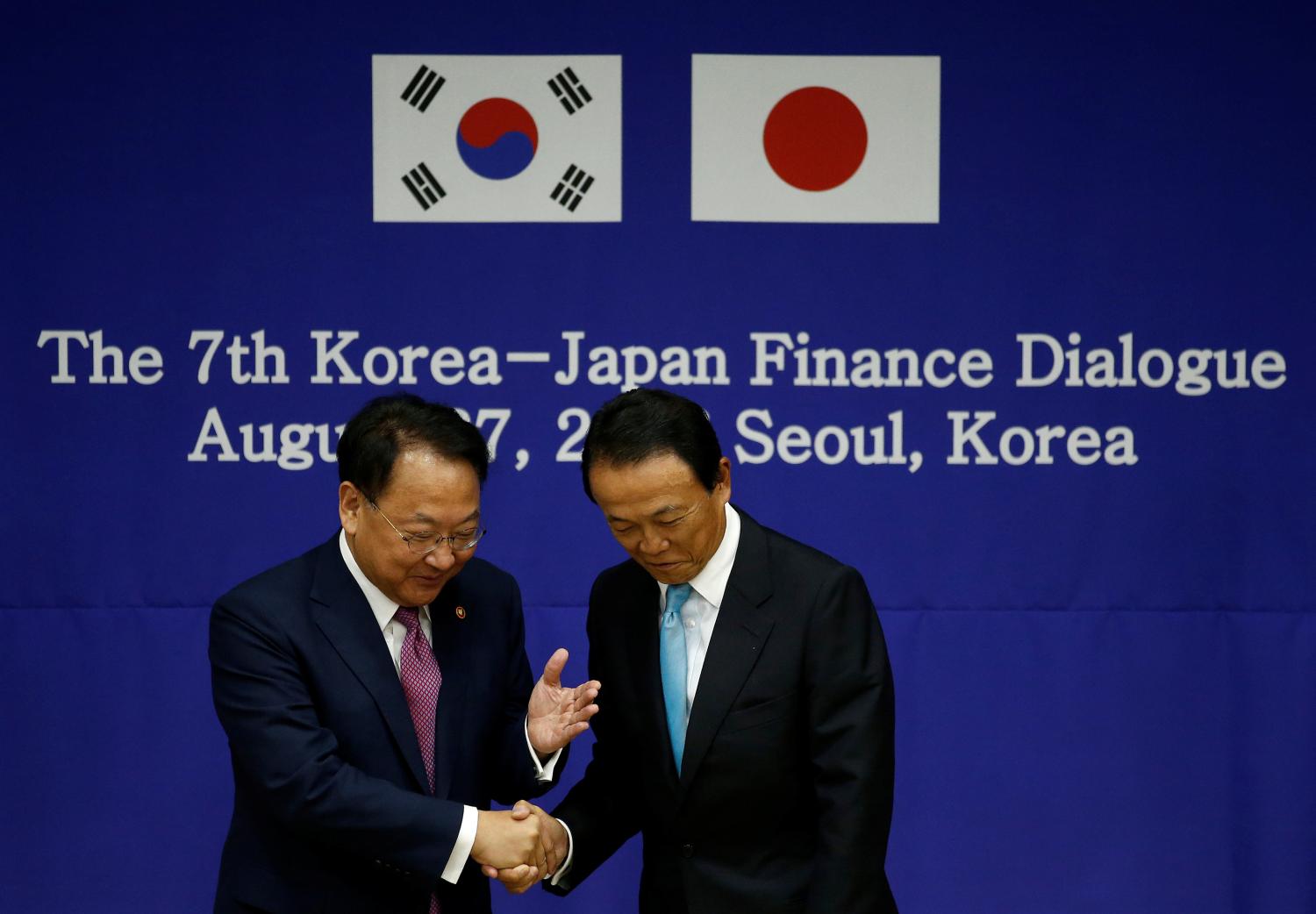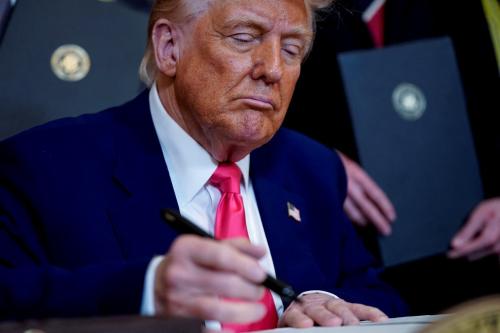On October 6, 2009 the Mongolian government signed a U.S. $4 billion mining deal with Canadian-based Ivanhoe Mines and its Anglo-Australian partner, Rio Tinto. These companies will jointly develop a project at Oyu Tolgoi, a location thought to hold one of the world’s largest copper and gold reserves. Hopes are high that this site, in the hitherto underdeveloped heart of the Gobi Desert, will bring forth unprecedented prosperity to this nation of fewer than three million people. This project will also launch a series of other possible contracts involving other partners worldwide – Russia and China to begin with, as well as India and Japan, among others. By enlisting fiscal and technological investment from these and other countries, Mongolia aims to utilize its vast yet untapped deposits of gold, silver, iron ore, coal, and uranium.
But there are also political and security motivations behind this agreement, in addition to the hoped-for economic benefits. Beginning here and now, Mongolia’s national security – both in theory and in practice – will be defined in terms of perceived success in multi-dimensional geo-economic balancing rather than the relatively simple geo-political and/or geo-strategic balancing that dominated both scholarly thought and practical actions since Mongolia’s Democratic Revolution in 1990. Throughout Mongolia’s two-decade period of democratic experience and real independence – following almost 70 years of membership in the Soviet bloc which restrained freedom of action in the international arena – its perception of and strategy for national security has undergone three distinct episodes, one gradually evolving into the next. Now, Mongolia’s national security strategy is progressing into a fourth and more complicated stage. Despite the shift in substance from politics to economy, the core concern remains the same. Mongolia will continue to pursue a strategy of diversifying its partners – more partners result in greater balancing opportunities and hence, a more guaranteed external security environment.
Early- to Mid-1990s: “Security through Democratization”
Mongolia became the world’s second socialist country in 1924, and was destined to become the first Asian nation to denounce the old system through a peaceful revolution in 1990. The period of peaceful change between 1990 and 1994 marked a watershed in Mongolia’s historical development, and the change has been no less dramatic in nature and in scope for having been achieved without violence and bloodshed.
The new constitution of 1992 instituted a solid legal framework for genuine democratic reforms. Pluralism and a multi-party system became a reality. Free market rules were introduced to govern the economic life of the country. Mongolia joined the International Monetary Fund, the World Bank, the Asian Development Bank, and the World Trade Organization. These developments were a breakthrough in the process of integrating Mongolia into the world economy, and that integration itself was a breakthrough. Having been dominated by China for two centuries and then by Soviet Union for seven decades, Mongolia has learned a single indelible lesson in terms of national sovereignty and security – that the nation should seek balanced, equidistant relations with its two neighbors while seeking wider recognition and global interaction to the utmost possible degree.
However, Mongolia was considered one of the least likely cases to achieve a successful transition to democracy. The scholar M. Steven Fish has noted that often a country’s transition to democracy and its success are often assisted by a history of previous liberal governance, its political culture, prior experience with elements of a capitalist free market economy, and even proximity to other democratic states. This helps explain the relative ease with which many East and Central European nations have undergone their transitions. Mongolia had none of these. It is because of these reasons that Fish described Mongolia’s successful transition as “democracy without prerequisites.”
Now it is widely believed that the initial assurance of national security was closely linked to, and exclusively depended on, the processes of liberalization and democratization. Mongolia had to become an open country to ensure international recognition. In doing so, Mongolia had to equally distance itself from the political domination of the then-still existing Soviet Union and post-Tiananmen China and move closer to the so-called “third neighbors,” major democracies like the United States and Japan. This international recognition and, moreover, appreciation of Mongolia’s transition to liberal democracy, served as the single most important factor of assuring national security in this otherwise unfavorable historical and geographical environment.
Mid- to Late-1990s: “Security through Proactive Diplomacy”
Mongolia’s foreign policy achievements were direct results of its strategy of assuring maximum national security through democratization. In 1994 the Parliament adopted two principal documents based on the spirit of the 1992 Constitution.
First, the Foreign Policy Concept heralded fundamental changes in the modus operandi of the nation’s engagement with the rest of the world as the end of the ideological confrontation of the Cold War opened up opportunities for Mongolia to pursue an independent foreign policy. In securing its interests, Mongolia pursues the following broad objectives:
- maintaining friendly relations with both Russia and China;
- developing friendly relations with developed countries in both the West and the East;
- strengthening the nation’s position in Asia and participating in the political and economic integration process in the region;
- seeking cooperation with international institutions such as the United Nations, its affiliated agencies, and international financial institutions;
- developing friendly relations with countries of the former socialist countries, including the newly independent states;
- promoting friendly relations and cooperation in the pursuit of common objectives with developing countries.
In addition, as a plausible counterweight to the dominance of Russia and China, especially in the wake of their strategic partnership and like-mindedness in nearly all issues of concern to global and regional security, first Mongolian scholars and then practitioners coined the term and pursued the “Third Neighbor Policy,” developing ever closer political, economic, cultural and security ties to developed democracies, including the United States, Japan, India, and European nations, as well as the international organizations.
The National Security Concept, also legislated in 1994, demonstrates how a comprehensive, human-centered, development-oriented security approach can complement the nation’s political will to pursue liberal democracy. Given the aforementioned foreign policy agenda and its ultimate success, the national security perception is based on the liberal institutionalist approach which many developing countries adhere to. It is composed of nine areas of concern including security of the existence of state, security of constitutional order, security of national economy, security of information, security of population and genetic composition, security of the environment, security of Mongolian culture and way of life, security of science and technology and finally, most importantly, security of civil liberties.
Within this context of a proactive foreign policy and liberal institutionalist approach to national security, Mongolia has offered a number of unique initiatives within the Northeast Asian region as active contributions to regional security. Mongolia declared its territory nuclear-free, a status recognized by the five permanent members of the United Nations Security Council, and has proposed to expand the nuclear-free zone beyond its boundaries throughout Northeast Asia. Though sounding utterly unrealistic within the neighborhood of nuclear Russia and China, this proposal can be understood as Ulaanbaatar’s call to Pyongyang to curtail its nuclear ambitions, which can destabilize the whole sub-region. As part of its multi-pillar foreign policy, the Mongolian government continues to offer good-will gestures and has a vested interest in maintaining stable relations with the two Korean states. Mongolia declared its interest in the peaceful resolution of the Korean crisis and its willingness to offer its contribution to the mutual understanding among the major actors of the region. In particular, it was declared that although North Korea faces difficulties in communicating to other actors, Mongolia’s stable and friendly relations with the two Koreas, Japan, and the United States can serve as an asset in enhancing the mutual understanding and building the confidence. A vivid example of such a policy was Ulaanbaatar’s hosting of Japan-North Korea working group discussions within the framework of the Six-Party Talks in August 2007.
Mongolia strives to become a full participant in the process of Asian regional integration. Mongolia is a member of the Association of Southeast Asian Nations (ASEAN) Regional Forum, and is seeking ASEAN Dialogue Partner status and membership in Asia-Pacific Economic Cooperation (APEC) and the East Asian Community.
In sum, the second half of the 1990s was marked by the strategy of proactive diplomacy, a more sophisticated tool of security assurance than merely a political democratization. Having secured stable and harmonious relations with both Russia and China while pursuing greater visibility in the region, this was the period of strengthening the “third neighbor” concept. This stage was built upon democratization, and did not replace it; moreover, this stage has paved the foundation for a third stage – increased international commitments of the Mongolian military – even has some features of the second stage are still in practice.
The 21st Century: “Security through Peacekeeping Commitments”
The beginning of the new century was especially productive with regard to Mongolia’s contribution to regional and global security. In 2002 the Parliament of Mongolia adopted legislation on dispatching military and/or law enforcement personnel to international peacekeeping operations. This legislation was reflected in certain unprecedented decisions that can be labeled as “bold” for some and “adventurous” for others. In March 2003, the Mongolian government declared that the country had become a member of the “coalition of the willing,” and offered political support for Operation Iraqi Freedom – a position not shared by its two immediate neighbors. Mongolian servicemen were sent to assist in the reconstruction of Iraq, performing their duties within the multinational command. Ten rotations of troops, each consisting of detachments 100 plus-strong, served in Iraq before the mission was declared successfully completed in 2008. In addition to the successful completion of peacekeeping duties by several officers as United Nations military observers in the Democratic Republic of the Congo, Western Sahara, Sudan, and Bangladesh, Mongolian military instructors are involved in the training of Afghan National Army units. In 2005, Mongolian troops successfully completed peace support duties in Kosovo as part of the NATO mission there. Under the aegis of the United Nations, the Mongolian Armed Forces continue to send their premier peacekeeping units to Sierra Leone, and an initial detachment will soon land in the African nation of Chad.
To facilitate increased participation in UN peacekeeping operations, Mongolia has set up a regional peacekeeping training center, and has hosted the annual international peacekeeping exercise “Khaan Quest” at that installation ever since 2005.
Mongolia’s participation in the U.S.-led coalitions in both Operation Iraqi Freedom and Operation Enduring Freedom in Afghanistan sometimes triggers criticism that it contradicts to the non-aligned stance of Mongolia’s foreign policy that is mandated in the nation’s Constitution. Some critics debate whether these steps automatically make Mongolia an ally of the U.S., or any other country in the coalition. The answer is rather negative; by signing-in to the ad hoc coalition of the willing, Mongolia remains a neutral country and stays away from building military alliances with any of the aforementioned countries, and from binding mutual security treaties.
Mongolia has certainly earned a so-called “peace dividend” from the international commitments undertaken by its reforming military. Ulaanbaatar has begun to attract the geo-strategic attention of other capitals, including Washington. In 2005 George W. Bush became the first sitting U.S. president to visit Mongolia and has proclaimed that the United States “is proud to be called the third neighbor of Mongolia” – a clear demonstration that willful actions made slogans a reality.
The New Era: “Security through Vested Interests”
More recently Mongolia has been blessed with an unprecedented opportunity for growth and an anticipated economic boom due to ongoing discoveries of its vast mineral resources and continuing investment bids. But this blessing could become a curse, as real world problems challenge the capacity of the state. Health issues, poverty, crime, underdeveloped domestic legal frameworks and institutions, and widespread perception of corruption all present enormous challenges to the national search for security. In general, Mongolia’s human security condition is inherently weak, and this is where the geo-economic dimension enters Mongolia’s pursuit of security – the government is now taking into consideration not only gigantic regional powers, but also giants of the transnational corporate world. Until now, Mongolia has quite successfully handled Moscow and Beijing and courted Washington, Tokyo, and Delhi. Now, however, it has to deal with new actors from across the globe, less bound by protocol courtesies of bilateral and multilateral diplomacy.
More stressing is the fact that where huge cash and high expectations meet week laws and poor management, the usual outcome is not prosperity but disaster. From a dream of becoming the “Persian Gulf of Northern Asia,” Mongolia still can slide down the path of the Zimbabwean model and its problems may be multiplied by strains of Dutch disease in which exploitation of natural resources leads to a decline in industrial production. It is therefore vital to remember that the nation’s perception and pursuit of security was successful up to now only because each of its stages, from geo-political to geo-strategic, were logically consecutive and evolutionary. Just as the proactive diplomacy was built upon the foundations of democratization, Mongolia’s peacekeeping commitments evolved from its multi-pillar foreign policy. In the same manner, Mongolia’s attraction of multi-billion mineral sector investment should resemble less of a cold-blooded monetary deal and more of a carefully weighed resource diplomacy, following the nation’s time-tested pattern of equidistant balancing of diverse actors. This is the real challenge. As a citizen, it is my hope that Mongolia comes out of this challenge as a winner, as it did in the past twenty years.
The Brookings Institution is committed to quality, independence, and impact.
We are supported by a diverse array of funders. In line with our values and policies, each Brookings publication represents the sole views of its author(s).



Commentary
Op-edSame Rules, New Dimensions For Mongolia’s National Security: Adapting to the New Geo-Economic Environment
October 20, 2009